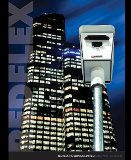Article from: www.thenewspaper.com/news/26/2697.asp
2/25/2009
Redflex Missteps Hit the Bottom Line
Redflex photo enforcement profit up, but less than it should have been, because of legal blunders.
 While most companies are struggling to hold losses to a minimum in the current economic environment, the leading Australian provider of red light cameras and speed cameras yesterday reported explosive growth in its US operations. Redflex Traffic Systems collected 49.3 percent more in revenue from American motorists than it had pocketed six months ago. This strong performance, however, was offset by a series of blunders that converted what should have been a 26 percent increase in net profits after tax into a net decrease of 11 percent. A nationwide traffic decline has cut into the number of expected tickets and, the company noted, more of those who receive tickets are simply refusing to pay -- costing the company A$1.1 million in revenue.
While most companies are struggling to hold losses to a minimum in the current economic environment, the leading Australian provider of red light cameras and speed cameras yesterday reported explosive growth in its US operations. Redflex Traffic Systems collected 49.3 percent more in revenue from American motorists than it had pocketed six months ago. This strong performance, however, was offset by a series of blunders that converted what should have been a 26 percent increase in net profits after tax into a net decrease of 11 percent. A nationwide traffic decline has cut into the number of expected tickets and, the company noted, more of those who receive tickets are simply refusing to pay -- costing the company A$1.1 million in revenue.
"We are starting to see a significant reduction in collection rates on many of our programs where we are remunerated on a per-ticket basis," the Redflex half-yearly report to Australian investors stated. "We believe the economic downturn in the USA is a major contributing factor to this."
Other losses can be attributed to avoidable missteps. Lawsuits filed by Arizona-based American Traffic Solutions (ATS) over its Australian rival's illegal use of uncertified radar equipment cost A$616,000 in legal fees, fines and compliance costs. The company lost another A$1.1 million after it failed to mail a contract renewal application on time to the city of Knoxville, Tennessee and after El Monte, California dumped Redflex cameras because they created a documented increase in collisions.
Redflex spent A$155,000 in an unsuccessful effort to promote itself to larger companies that had expressed interest in buying the photo ticketing operation. Redflex spent another A$365,000 in moving its US offices to a luxurious new complex at the Pinnacle Peak Commerce Center in Phoenix, Arizona.
On the positive side, Redflex cited a number of developments favorable to its bottom line. An 88 percent boost in the number of cities signing up for speed cameras over the past half-year helped revenue growth. Each speed camera ticket paid in US dollars was converted into ten percent more Australian dollars thanks to the strengthening of the US dollar over the past six months.
Redflex also cited promising new technologies that would keep cities interested deploying the company's cameras. For example, new license plate recognition features can now be used in "identifying vehicles of interest" by tracking and identifying every vehicle that passes a Redflex camera, regardless of whether any traffic infraction has been committed or not. Redflex will also offer tickets using black and white photography to save money. It will offer "Remote adjudication processing" to allow idle operators sitting in the fully automated speed camera vans to process citations. The Australian company is also extending its offerings with Noise Ticket Cameras and cameras to automatically ticket any vehicle deemed too heavy.
"We expect to see the growth in the USA market continue," the Redflex report stated. "As the clear leader in that potential multi-billion dollar market which is less than 10 percent penetrated at this stage, the opportunities for growth are enormous, and Redflex is well positioned and equipped to capitalize on the continued expansion of the market."
Overall, the market was not impressed by the Redflex announcement. Shares plunged 25 cents from $3.05 to $2.80 upon its release.
 While most companies are struggling to hold losses to a minimum in the current economic environment, the leading Australian provider of red light cameras and speed cameras yesterday reported explosive growth in its US operations. Redflex Traffic Systems collected 49.3 percent more in revenue from American motorists than it had pocketed six months ago. This strong performance, however, was offset by a series of blunders that converted what should have been a 26 percent increase in net profits after tax into a net decrease of 11 percent. A nationwide traffic decline has cut into the number of expected tickets and, the company noted, more of those who receive tickets are simply refusing to pay -- costing the company A$1.1 million in revenue.
While most companies are struggling to hold losses to a minimum in the current economic environment, the leading Australian provider of red light cameras and speed cameras yesterday reported explosive growth in its US operations. Redflex Traffic Systems collected 49.3 percent more in revenue from American motorists than it had pocketed six months ago. This strong performance, however, was offset by a series of blunders that converted what should have been a 26 percent increase in net profits after tax into a net decrease of 11 percent. A nationwide traffic decline has cut into the number of expected tickets and, the company noted, more of those who receive tickets are simply refusing to pay -- costing the company A$1.1 million in revenue.